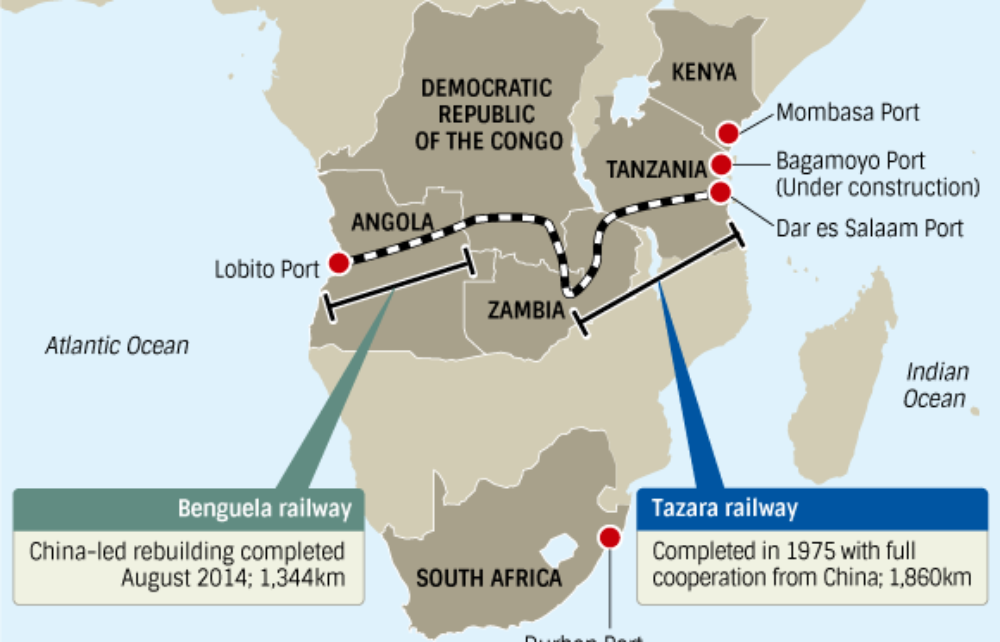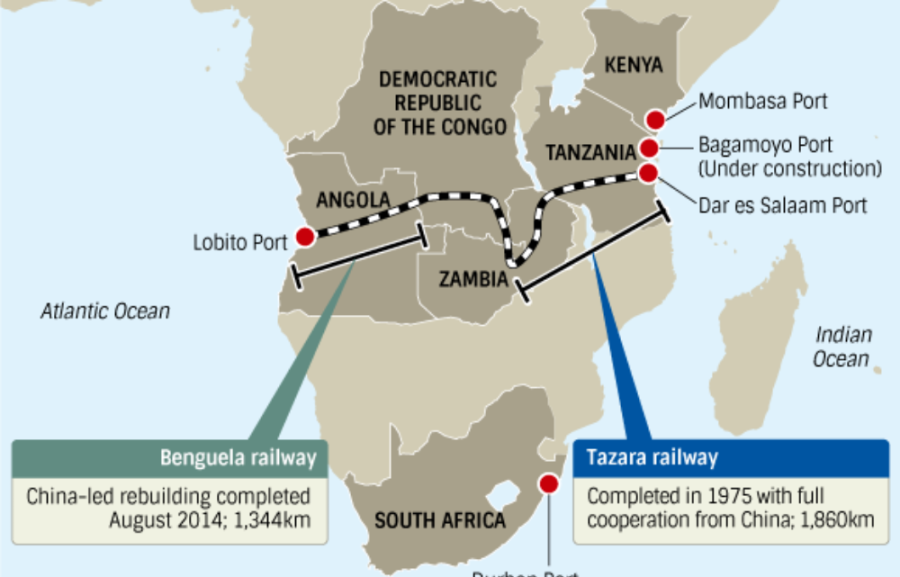Two Chinese companies, CITIC and CR20, are competing for the management and maintenance of the Lobito Corridor in Angola, along with Portugal’s Mota-Engil, which is partly owned by China Communications Construction.
According to the Port of Lobito, other interested parties include Switzerland’s Trafigura and Dubai-based DP World, which won a 20-year concession to manage the Port of Luanda last January.
The 1,350-kilometre Lobito Corridor provides a rail export link from Zambia and the Democratic Republic of Congo (DRC) across Angola to the Atlantic Ocean.
Beginning a series of technical visits to inspect the current state of operations, bidders’ representatives visited the workshops of the Benguela Railway (CFB), and the mining terminal at the Port of Lobito.
The delegation, which included representatives of CFB and the Port of Lobito, later took a special train to Luau to visit the main infrastructures located along the railway line, passing through the provinces of Huambo, Bié and the city of Luena.
The international tender for the management, railroad infrastructure maintenance, goods transport and logistics support services for the Lobito Corridor was launched on 8 September. The deadline for submitting proposals is 7 December.
The government wants to create a privately funded entity, dubbed a Specific Purpose Company (SPE), to be controlled by private operators with minority state investment.
The SPE will be responsible for the operation and maintenance of the Lobito/Luau railway infrastructure, with the possibility of building a branch line to Zambia; the rail freight service on the Lobito/Luau railway; construction, operation and maintenance of two merchandise transit terminals to support the railroad service of merchandise transport on the Lobito/Luau railway, one of them in Lobito and the other in Luau; management of the training centre in Huambo province and maintenance and operation of the railroad workshops.
The concession will last 30 years, and the concession holder will take on the transport of large cargos, mainly ore and fuel, while the public passenger and small cargo transport service will remain under the management of CFB.
According to the Angolan government website, the aim is to maximise the potential of the Lobito Corridor railway infrastructure, boost exports and indirect investments in multimodal platforms, terminals and other infrastructures along the line, and to promote the economic, social and cultural development of local communities.
The reactivation of the Lobito Corridor also aims to boost regional integration, taking into account the possibility of connecting the Atlantic and Indian oceans with the railway’s link to the port of Dar es Salaam in Tanzania.
Operation of the Lobito Corridor involves additional investment along the Lobito/Benguela/Luau railway route, including integration of the adjoining railway on the other side of the border in the DRC and construction of a branch line to Zambia.
According to the Angolan government, some US$1.9 billion has recently been invested in rebuilding the railway and the link with the DRC, CLBrief reported.




